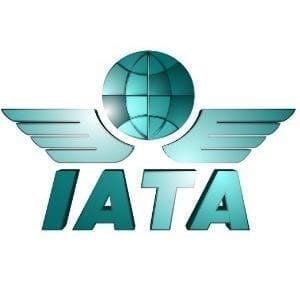According to the International Air Transport Association (IATA), aviation’s direct contribution to the African GDP will increase by 5% over the next 20 years which would result in 66 000 new jobs being created.
“Air transport is vital for the economic and social prosperity of Africa. Including aviation-related tourism, air transport generates $67.8 billion in GDP for Africa, supporting 6.7 million jobs. With the right policies in place, this footprint will grow substantially in the years to come,” said Mike Higgins, Regional Vice President: Africa, International Air Transport Association (IATA). He was speaking at a media briefing earlier this week in Johannesburg following the conclusion of the African Airlines Association Annual General Assembly. Higgins noted that we can only take advantage of these growth opportunities should African airlines turn a profit. “And unfortunately our October forecast showed that once again African airlines will collectively make no profit this year. This is despite air traffic growing strongly in Africa. So we need to understand the challenges facing aviation in the region,” he said. Challenges currently facing the industry are security, safety and taxes and rates. When it comes to safety, Higgens mentioned that IATA has made notable progress with certain carriers. In 2011, the total accident rate of African carriers on the IATA Operational Safety Audit (IOSA) registry was almost at the same level of other IOSA carriers worldwide. The figures of the safety audits show remarkable improvements however there is still a lot of work to do and a lot of progress still to make on the matter. “But on the other hand, we cannot escape the fact that Africa still faces a considerable safety gap compared to other regions. Last year, for Western-built jets, a hull loss was suffered every 305,000 flights in Africa, compared to every 2.7 million flights in the rest of the world.” Security as mentioned is one of the challenges still to be overcome. Higgins expressed that need to improve the level and experience of security for both freight and passengers.“Over the last two years, IATA has been refining the concept for a Checkpoint of the Future. Checkpoint of the Future will reduce security queues while also improving security, through a combination of new technology and a risk-based approach.
“Similar progress is being made in cargo security. Shippers, forwarders, airlines and regulators need to work together to create a sterile transportation trail, starting with the manufacturing process and continuing through the shipping chain until the object reaches its destination. Through programs like ‘Secure Freight’ we are well on the way to achieving this. Our pilot in Kenya has been a great success, increasing the security, speed and flexibility of air freight.” Higgins cautioned that a patchwork of taxes and charges across Africa, usually on fuel and passengers, is damaging competitiveness and connectivity. “Of course, infrastructure must be paid for, but governments need to understand that the cost-benefit of developments must be compelling if the competitiveness of the industry is to be preserved,” he said. “To conclude, the prospects for aviation growth are bright in Africa. The region is developing fast and expanding its trade links to rapidly-growing markets around the world. If we can collectively resolve the safety, security and infrastructure issues – as I believe we will – then aviation will be well placed to be the driver of even greater prosperity.” Next June IATA will hold its Annual General Meeting (AGM) in Cape Town. It will be our first AGM held in Africa since Nairobi in 1991.






